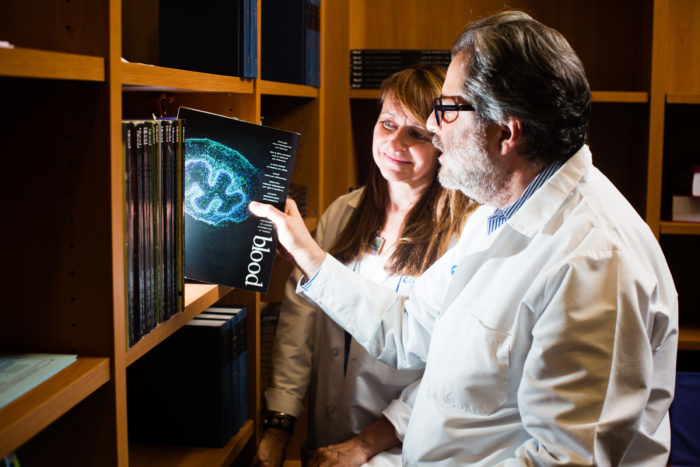Approximately 1 percent, or 40,000, babies in the United States are born with a congenital heart disease each year. That’s almost 5,000 babies in California alone. In order to catch problems as early as possible, fetal cardiology specialists at the CHOC Heart Institute work with pregnant women to evaluate, diagnose and manage babies in utero […]
CHOC Specialists Discover New Metabolic Condition
CHOC metabolic disorders division has discovered a previously unreported condition that could provide answers for parents of children experiencing unexplained liver failure. Led by Dr. Jose Abdenur, the division’s medical director, the team has coined the genetic condition Mitochondrial Transcription Factor A (TFAM) deficiency and has published its findings this month in the journal Molecular […]
Know the Risks of Sunken Chest
Pectus excavatum is the most common congenital chest wall abnormality and can displace the heart as well as limit lung capacity.
Dr. Sudeep Kukreja Recognized by California Medical Association for Increasing Local Members
Dr. Sudeep Kukreja, associate medical director of the neonatal intensive care unit at CHOC Hospital and medical director of the hospital’s newborn hearing screening program, has received the Dev. A. GnanaDev Membership Award from the California Medical Association (CMA). The award is given to the CMA physician member residing and practicing in California who during […]
CHOC Specialist Appointed to CalOptima Board
A CHOC specialist has been appointed to CalOptima’s board of directors. Dr. Paul Yost, chair of CHOC’s anesthesiology division, was sworn in Aug. 4. He was appointed by the Orange County Board of Supervisors as one of six new members to guide the agency that administers health insurance programs for low-income children, adults, seniors and […]
Living with arthritis: Carson’s story
Seventeen-year-old Carson comes from a close-knit family of athletes and had been playing baseball for a decade when consistent, unexplained pain left his family stumped and looking for answers. The next 18 months were filled with countless physical therapy and orthopedic appointments. When an MRI of his spine lead the radiologist to assume they were […]







